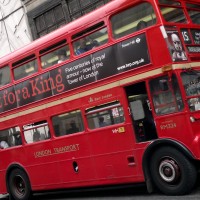
When you hear that the government is in talks with various groups, interested parties, and representatives from particular communities regarding this proposal or that law, you might wonder who these people are. For all we know, they could be wind-up dolls that officialdom wheels out for the purpose of nodding approval and not objecting.
I’m really pleased – and relieved – to report that when it comes to consulting on photographers’ rights, it’s not a dolls’ house of Barbies and Kens that Theresa May turns to. One of the organisations that talks with the Home Office is SceneThat. It was founded by former BBC-man Mark Singleton in 2008 and earlier this week I asked him a few questions to find out a bit more about him, his organisation, and his work for photographers’ rights.
It turns out that SceneThat came about through a life-changing, in fact a near life-ending, experience for Mark, as he explains: ‘During the early part of 2008, I had a brain attack. Literally. A blood vessel at the back of my head burst, and changed my world in a stroke.’
Okay, so it wasn’t the burst blood vessel that led to the foundation of SceneThat directly, more what happened to Mark during his convalescence when he couldn’t face watching daytime TV (I think we’re all with you there, Mark) but decided to get out on the streets of London with his camera and a tripod (sounds like a valid alternative to me).
You’ve probably guessed, the experience of being the man with the camera and tripod wasn’t a pleasant one. ‘I suddenly understood why the press was so full of horror stories about the treatment of photographers. Twenty years prior to that, as a member of BBC Newsgathering, I had “been there, done that, got the T-shirt”. It was fair to say that in my first month of wandering around with a camera as part of my “rehab”, I met more hostility than I had in a decade of covering everything from the Troubles in Northern Ireland to the widespread riots during 1984’s summer of discontent.’
Realising that it wasn’t just the police who didn’t understand fundamental laws in this country, but that photographers were doing themselves absolutely no favours with a very wishy-washy knowledge of what they could and couldn’t do, knowledge Mark likens to that which is rolled out at pub closing time, Mark decided to do something about it. As Mark put it, it’s all very well wanting to make the country a safer place, but it shouldn’t come at the price of abandoning our freedoms.
So, he spoke to a few photographer ‘buddies’, who happened to be high up in the legal world. They offered to keep him on the ‘straight and narrow’ as he strove to point photograhers in the right direction when it came to their rights, provided that he didn’t offer specific legal advice. You can land yourself in rather murky water if you start doing that. SceneThat helps photographers to find their own authoritative answers.
Over the past three years individual ‘legal eagles’ have come and gone from the SceneThat, ehm, scene, but they’ve maintained their objective of providing pointers to the facts. As a result of his own improved knowledge Mark has campaigned on behalf of photographers; talking with politicians, police and anyone else who would listen!
Mark says that he’s often asked if things are really going to get better: ‘I can only answer by saying that in my experience, there is now a real desire to cull decades of “poorly-worded” laws, and replace them with less, fairer and more proportionate legislation.’
That really does sound positive, but he points out that we can’t afford to take our eye off of the ball and we have to ensure that these intentions are followed through.
And there is some movement, Mark says: ‘Continuing the top-down approach, Government is introducing changes to policing that delivers greater accountability coupled with better internal guidance and procedures.’ Mark was recently one of those ‘interested parties’ who met at the Home Office alongside some people who advise on training security guards – the aim was to cascade the message to every level of ‘officialdom’. We might not be there yet, but Mark is convinced that things are getting better. ‘Over-zealousness is being replaced with increasing levels of common sense. It is a slow process, but lasting change often requires that approach.’ No, big change doesn’t happen quickly, just as difficult problems don’t have easy solutions.
When I asked what still needs to be done, Mark told me that SceneThat will be keeping their eyes on officialdom to make sure that promised changes aren’t forgotten. ‘We’ll keep the pressure on our leaders and those who lead police and security officers to ensure that our safety doesn’t mean giving up our freedoms. As photographers, we’ll continue to think how the pursuit of our art and craft may be perceived by others – and we’ll help them to overcome their anxieties in the process. After all, photography is not a crime.’
Many thanks to Mark for chatting with me. If you are in search of legal advice regarding photographers’ rights, SceneThat is the perfect place to start. They’ll empower you to find out just what you need to know. And if you have a bad experience with a police officer or a security guard, let them know. The more knowledge that they have of people’s experiences, the more effective their campaigning can be.





